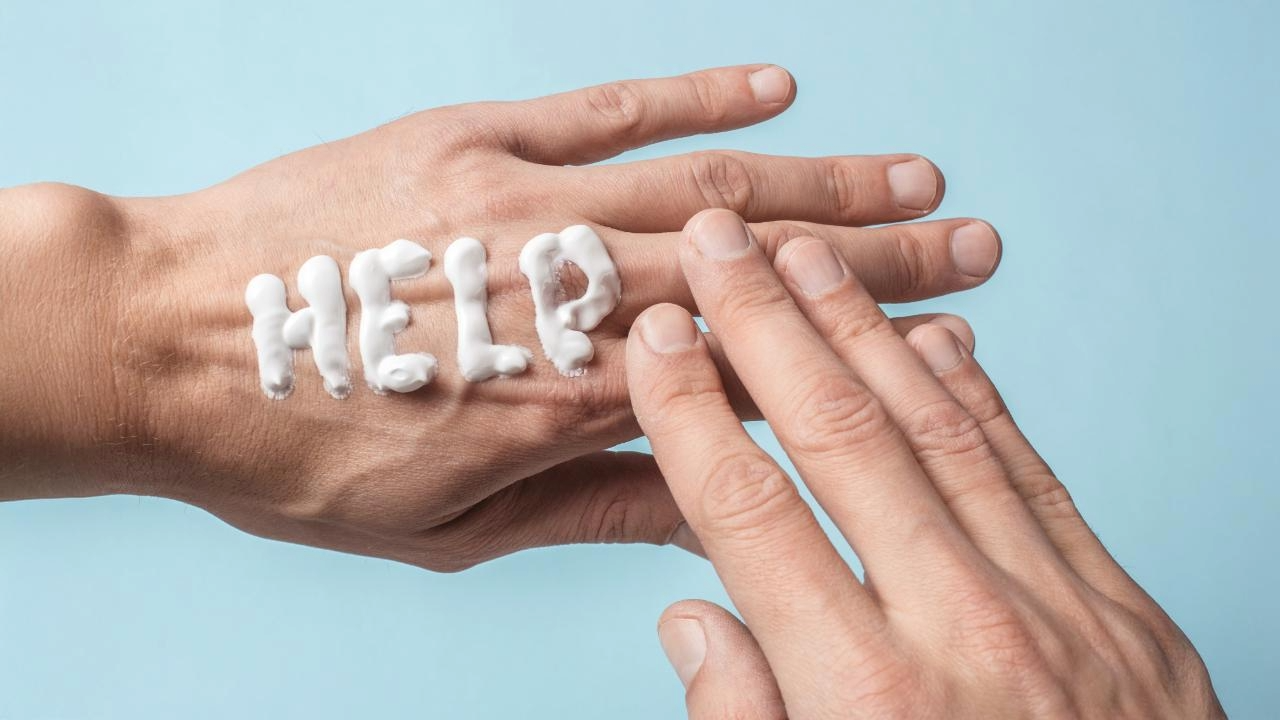Younger Generations Are Increasingly Aware of Gut Health
As conversations around health and wellness become more prevalent, younger generations are increasingly tuning in to the significance of gut health. This awareness is reshaping not just individual habits but also how brands engage with these consumers. In this article, we'll dive deep into the trends and factors contributing to the growing emphasis on gut health in younger populations.

Introduction
Gut health refers to the balance and function of the microbial communities living in our digestive systems, particularly the large intestine. It plays a crucial role in everything from nutrient absorption to immune function. When our gut is happy, we often feel better both physically and mentally.

For younger generations today, who are often on the search for holistic ways to enhance their well-being, gut health has become a trending topic. As part of a broader focus on health and wellness, millennials and Gen Z are now embracing the idea that maintaining a healthy gut can lead to better overall health. They're connecting the dots between digestion and mood, energy levels, and even skin health, prompting a shift in lifestyle choices and consumer behavior toward gut-friendly products and practices. This newfound awareness underscores the importance of the gut and marks a significant cultural shift in how health is perceived and prioritized.
Understanding Gut Health in Younger Generations
Gut health refers to the balance of microorganisms in the digestive tract, a balance that plays a crucial role in overall health and well-being. A healthy gut can affect everything from digestion and immunity to mood and mental clarity. In recent years, younger generations have started to recognize that what happens in their guts can have a ripple effect throughout their bodies, leading to increased focus on this vital aspect of health.
Millennials and Gen Z, often characterized by their tech-savvy nature and quest for wellness, are leading the charge in gut health awareness. Access to information at their fingertips has prompted curious minds to explore how their diets affect their digestive systems. Social media campaigns, blogs, and videos are filled with content on probiotics, prebiotics, and the benefits of a diverse diet. Young people are more willing than ever to ask questions, experiment with their diets, and make informed choices based on what they learn.
This generation is also becoming increasingly aware of the influence of gut health on mental health. Studies highlighting the gut-brain connection—how the gut microbiome impacts mood and cognitive function—have fueled this interest. Young people are more likely to engage with health topics that not only improve their physical health but also enhance their mental well-being.

As awareness grows, younger folks are shifting their dietary choices to include foods that support gut health, such as fermented foods like yogurt, kimchi, and kombucha. Whether it's swapping soda for probiotics or adding fiber-rich fruits and vegetables to their plates, these changes reflect a more conscious approach to eating. By understanding the importance of gut health and embracing it, younger generations are setting themselves up for a healthier future, one bite at a time.
The Growing Influence of Social Media on Health Topics
In the digital age, social media has become the go-to source for information on just about everything, including health. Platforms like Instagram, TikTok, and YouTube aren’t just for sharing memes and travel photos anymore—they’re hotbeds of health education, especially regarding gut health. With a few taps, users can access a wealth of tips, DIY remedies, and personal stories about gastrointestinal health.
Take TikTok, for instance. Hashtags like #GutHealth and #IBS have exploded in popularity, racking up millions of views. Short videos can quickly explain what probiotics do or highlight the benefits of fermented foods. The appeal lies in their concise, engaging format that breaks down complex topics into digestible bites (pun intended).
Instagram plays its part, too, with health influencers showcasing their favorite gut-friendly recipes and supplements. They’re not just sharing personal success stories; they’re creating communities around gut health where followers can exchange insights and find support. You see colorful smoothies loaded with gut-supporting ingredients and engaging captions filled with actionable tips, making it easy for younger audiences to connect and relate.
Yet, while platforms foster awareness, they can also blur the lines between credible information and misleading claims. The rapid spread of trends like "clean eating" or "detox diets" can leave many confused about what constitutes actual gut health advice. Despite this, the influence of these platforms is undeniable; they’ve sparked conversations that might not have happened otherwise and have encouraged young people to take a more active role in their health.
In short, social media is not just amplifying the conversation around gut health; it’s empowering younger generations to prioritize their well-being. As they navigate the vast raw data and personal narratives, they're reshaping their health habits, one post at a time.
IBS Awareness and Representation
Irritable Bowel Syndrome (IBS) is a common condition that affects a significant number of young people today. It’s marked by symptoms like bloating, pain, and altered bowel habits, and estimates suggest that around 10-15% of the global population experiences it. Unfortunately, this condition isn’t just a physical ailment—it often comes with a hefty mental load. Many young individuals grappling with IBS feel isolated or embarrassed, something that can lead to avoidance of social situations and lower quality of life.
However, there's been a noticeable shift in how IBS is talked about in our culture. Social media platforms are filled with discussions about digestive health and personal experiences, making IBS more visible than ever. Influencers and health advocates are sharing their stories, making it easier for others to see that they’re not alone. Whether it's a TikTok dance showcasing how to manage flare-ups or an Instagram post about coping strategies, these platforms are normalizing conversations about gut health.
Moreover, the inclusion of IBS in media and educational resources is crucial. We’re seeing more blog posts, podcasts, and documentaries about the realities of living with IBS, which helps demystify the condition and break down the stigma. Initiatives like awareness months—such as IBS Awareness Month in April—further push this agenda, encouraging people to speak up and seek help.

Personal testimonials paint a powerful picture. One young woman shared her journey from feeling ashamed to embracing her condition and becoming an advocate for others like her. She emphasizes the importance of seeking professional help, dietary adjustments, and community support, highlighting that there are resources out there for education and coping strategies. If you’re looking for information or support, organizations like the International Foundation for Gastrointestinal Disorders (IFFGD) provide valuable resources for those living with IBS.
This new wave of awareness and representation represents a massive win for those affected by IBS. By opening up about their experiences, younger generations are not only redefining how we discuss gut health but are also empowering themselves and others to take charge of their health.
Natural Solutions and Supplements
In the pursuit of better gut health, younger generations are increasingly turning to natural remedies and supplements. These alternatives appeal to those who are looking to enhance their well-being without relying solely on pharmaceuticals. Among the most popular options is baobab powder, derived from the fruit of the baobab tree. Packed with vitamin C, fiber, and antioxidants, baobab powder is gaining traction for its potential to support digestive health and promote a balanced gut microbiome.

But why the sudden rise in interest? One reason is the growing desire for transparency and natural ingredients in health products. Younger consumers appreciate knowing exactly what they're putting into their bodies, and they’re drawn to the wholesome, additive-free nature of natural supplements. Baobab powder can easily be added to smoothies, yogurt, or even baked goods, making it a versatile option for health enthusiasts.
For those looking to dive deeper into what baobab powder is and how to use it, there are plenty of resources available. For starters, you can check out What is Baobab Powder? Everything You Need to Know to get the lowdown on its benefits and nutritional profile. If you're wondering where to buy it, the guide on Where Can I Buy Baobab Powder provides several options that cater to various needs and preferences.
As younger generations continue to educate themselves about gut health, the shift towards natural solutions and supplements like baobab powder is likely to shape their dietary choices even further. This growing awareness and proactive approach to health may foster a culture that values wellness, resilience, and informed choices for years to come.
The Shift in Dietary Choices
Younger generations are reshaping their plates, recognizing that what they eat goes beyond taste; it significantly impacts gut health. This demographic is more attuned than ever to the gut-brain connection. As a result, they are making dietary changes that prioritize their digestive well-being.
The Rise of Plant-Based Diets
- Surging Popularity: Plant-based diets are becoming the norm among younger consumers.
- Colorful Choices: Many are opting to fill their bowls with:
- Colorful fruits
- Fresh veggies
- Nutritious legumes
- Whole grains
This shift isn’t just about being trendy; it’s about cultivating a healthy gut microbiome. Foods rich in fiber promote beneficial bacteria, helping to keep everything running smoothly on the inside.
The Trend of Fermented Foods
The buzz surrounding fermented foods is hard to ignore. Popular options include:
- Kombucha
- Kimchi
- Yogurt
These staples are packed with probiotics, the good bacteria that support digestion. Young consumers are learning that gut health isn’t merely a fleeting trend; it’s a lifestyle choice deeply rooted in both science and tradition.
Understanding the Power of Dietary Choices
As awareness grows, so does the understanding of how personal dietary choices can wield real power over health. This trend is about more than just feeling good; it revolves around creating habits that may help stave off health issues down the line.
Changing the Food Landscape
From grocery store shelves to restaurant menus, the demand for gut-friendly options is undeniably transforming the food landscape. The message is clear:
- What we put on our plates matters.
-
The younger generations are ready to eat in ways that support their gut health.
Challenges in Promoting Gut Health
Navigating the landscape of gut health can be tricky, especially when misinformation and misunderstandings are rampant. Many young people are eager to learn about gut health but often encounter conflicting messages online. For instance, while some influencers tout the benefits of certain diets or supplements, others might push anti-scientific claims that can muddy the waters. This can lead to confusion about what truly promotes gut health versus what’s just trendy.
Also, accessibility is a major hurdle. Not everyone can afford organic foods, supplements, or even basic health care, leaving marginalized communities at a disadvantage. This disparity means choosing gut-friendly options is not always straightforward—especially when healthy choices are scarce in certain neighborhoods. For some, the idea of improving gut health feels out of reach due to socioeconomic barriers or a lack of education on what gut health even involves.
While there are countless resources available online, they often cater to those with a certain level of health literacy. Terms like "prebiotics" and "microbiome" can be off-putting or confusing. This can create a knowledge gap that leaves some young people disengaged or overwhelmed. Addressing these challenges is crucial to ensure that the conversation around gut health is inclusive and empowering for everyone, regardless of background or access.
Future Trends in Gut Health Awareness
Looking ahead, the conversation around gut health isn’t likely to slow down; in fact, it’s poised to accelerate. With younger generations leading the charge, we can anticipate a few defining trends.
Personalized Nutrition
One of the most significant trends on the horizon is personalized nutrition. As technology advances, the understanding that one-size-fits-all diets are outdated is becoming more mainstream. Key developments include:
- DNA and Microbiome Testing: Young consumers are increasingly exploring these tests to identify their unique dietary needs.
- Tailored Solutions: Imagine apps suggesting specific foods or supplements based on individual gut composition. This could revolutionize our approach to nutrition and take the guesswork out of what to eat.
Research Insights
On the research front, interest is surging from both scientists and brands. Key areas of focus include:
- Gut-Brain Axis: More studies are examining how gut health impacts mental well-being.
- Product Development: As new findings emerge, expect a wave of products that support digestive health while also enhancing mood and mental clarity.
Brands are likely to market their products with a dual focus, emphasizing the connection between gut health and holistic wellness.
Sustainability
Sustainability will play a pivotal role in shaping future gut health products. Consider the following:
- Consumer Preferences: Younger generations care deeply about the environmental impact of their choices.
- Gut-Friendly & Sustainable Foods: A rise in products that are gut-friendly and prioritize sustainability can be expected—think local, organic, and zero-waste packaging.
As more consumers draw connections between gut health and ecological health, brands that align with these values will likely cultivate a loyal following.
Education
Education is essential in the evolving landscape of gut health. Here’s what to watch for:
- Increased Understanding: The more we comprehend the science behind gut health, the more empowered we will be to make positive choices.
- Educational Campaigns: Expect campaigns led by health professionals and advocates utilizing digital platforms to disseminate accessible information.
- Community Resources: Workshops and resources will become more prevalent, breaking down barriers to knowledge for everyone.
Conclusion
In short, the future of gut health awareness among younger generations looks dynamic and interconnected with broader trends in personalization, sustainability, and education. As these young consumers continue to demand transparency and innovation, brands that keep pace will thrive in this evolving landscape.
As we’ve seen, younger generations are stepping up their game when it comes to gut health awareness. This isn't just a fleeting trend; it’s a shift in how they view wellness. They’re recognizing that gut health impacts everything from digestion to mood, and this awareness is prompting real changes in lifestyle and dietary choices.
With the help of social media and personal stories, young people are challenging old misconceptions and seeking out information that resonates with their experiences. They’re turning to natural solutions and opting for diets rich in plant-based foods and fermented products, reflecting a broader commitment to well-being.
But let’s not forget that while awareness is rising, there are still hurdles to overcome. Misinformation can spread as quickly as good advice, and access to credible information isn’t equal for everyone. Ongoing dialogue and education are crucial, as is making resources available to all communities.
Looking forward, it’s exciting to think about where gut health discussions will lead us. As research advances and more products emerge, the future is bright for young people navigating their gut health journeys. The key takeaway? Keep the conversation going. A healthier gut leads to a healthier life, and the more we talk about it, the better equipped everyone will be to take charge of their health.
Additional Resources
To get a broader understanding of gut health, it’s essential to tap into reliable resources that break down the science, share personal stories, and offer actionable insights. Here are a few places worth checking out:
- Gut Health Basics: For an overview of what gut health really means and why it matters, this resource provides a solid foundation. It covers everything from the gut microbiome to how it affects mood and digestion.
- Rising Trends in Nutrition: Explore articles focused on the latest research and trends in gut health. You'll find information on emerging studies that could change the way we think about diets and digestion.
- Social Media and Gut Health: Platforms like Instagram and TikTok are buzzing with content around gut health topics. Search for hashtags like #GutHealth or #IBSAwareness to discover a myriad of posts ranging from recipes to personal journeys.
- Community Support: Look for online forums and support groups where individuals discuss their experiences with gut health issues, share tips, and offer encouragement. It’s a great way to connect with others who might be on a similar path.
- Expert Opinions: Podcasts or YouTube channels featuring nutritionists and health experts can provide deeper dives into specific topics like IBS, probiotics, and the benefits of foods like baobab powder.
These resources can help demystify gut health, making it easier to understand and incorporate into daily life. As gut health continues to gain traction, staying informed will empower younger generations to make better choices for themselves and their communities.



